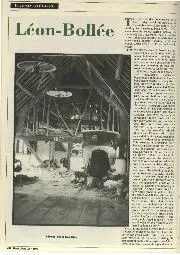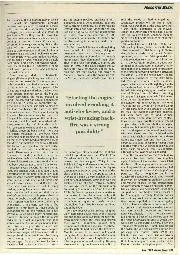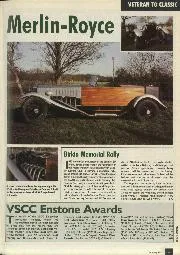ANTI -KNOCK FUELS.
(A plea for their distribution to the ” ordinary motorist”)
WITH the advent of the modern high efficiency engine, motorists find that neat petrol sometimes provokes knocking. Until the petrol companies made a move to produce a better petrol, owners of high compression machines have had to use either Ethyl petrol or petrol benzol mixture.
Ethyl petrol was produced by adding to No. 1 spirit a substance known as Tetra Ethyl lead, a product of coal tar distillation. The addition of a very small quantity of this ingredient has the required effect, and increased power and improved consumption is to be obtained without harshness. Unfortunately, the public found out that the tar product was of a highly poisonous nature, and hesitated. to buy the new spirit. Experiment has shown that the proportion of the poison is so small that no ill effects are experienced even by mechanics constantly filling petrol tanks with it. Motorists, and especially motor-cyclists, must be disappointed at the cisappearance of this fuel, which made the running of sports machines niuch easier.
The other fuel favoured by the sports brigade is a mixture of .petrol and benzol. The writer was once informed by a member of a firm marketing ready made mixture, that the spirituous nature of one constituent and the oily nature of the other made it impossible for the ordinary user to obtain a homogenous mixture merely by emptying the fuels into the tank in the right proportion. The writer had always thought this a tall story, but
has lately been running a Rudge Whitworth with a compression of 6.8-1., using a 50/50 mixture. He has noticed quite definitely an impthvement in running after refilling the tank, and a corresponding roughness when the heavier benzol had been used, and the lighter petrol remains. No report of this effect has ever been mentioned to the writer’s knowledge, and it would be interesting to know whether the fuel, used in road. races has been thoroughly mixed, and if not, whether this has any detrimental effect on the running.
The commercial mixtures at present available are supposed to contain about 10% benzol, and this is very beneficial for ordinary high compression engines. Unfortunately those of us who run unorthodox motors with finicky %nines find that this fuel is not quite ” soft ” enough and we have to fall back on the Ethyl which is not always easily obtainable, or rely on our home made mixture. Those of us who endeavour to go quickly in competitions almost invariably avail ourselves of the product of Hammersmith Distilleries, but Disco’ is not at present available for ordinary use. There is a commercial grade but the trouble is not the fact that a grade is not made, but that it is not marketed. If this fuel were obtainable on the road it seems that the sales would amply justify the enterprise of any firm which tried this experiment. After all it is a home product and should, be encouraged.
Who will be the first firm to step into the breach ?





